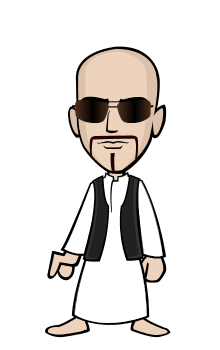
Martin Scorsese had to have a spot in the top ten, and few movies on his CV are as beloved and celebrated across the board as 1976’s Taxi Driver. Maybe the definingRobert De Niro performance in a career of them, the film won the Palme D’or at Cannes and hasn’t stopped accumulating acclaim since. Routinely cited as one of the greatest movies of all time, it has elements of noir, a vigilante narrative, psychological thriller, and more, and has become a true cultural touchstone. Even those who have never seen the movie know the infamous, "You talking to me?" scenario.

1948's The Red Shoes, inspired by a Hans Christian Anderson fairy tale, follows a young, unknown ballet dancer as she contends with the demands made of her by her career and by the man she loves, and the tension that creates. Praised for being both avant garde and classical, the film explores the nature of creativity and presses at the boundaries between cinema and theater. Michael Powell and Emeric Pressburger’s film is a story that, like its protagonist, is pulled in multiple directions by multiple forces and influences, to mesmerizing results, and is never as simple as the story sounds.

Paul Thomas Anderson has become celebrated as a modern auteur with sprawling movies like Magnolia, There Will Be Blood, and The Master on his resume. Still, it’s his 1997 porn industry-set drama Boogie Night that finds a place in the top ten. Probably still his most broadly appealing film, the John Holmes-inspired story nails the details of the 1970s setting, showed us that Mark Wahlberg could actually act his ass off, and presents a textured, empathetic, compassionate portrait of what amounts to an extended family comprised of wounded individuals struggling with their various demons.

1977's Annie Hall is Woody Allen working at the top of his considerable game. 38 years later it still holds up, and is a reminder of just how wonderful the romantic comedy, as a genre, can be, which is nice to remember when you consider the deluge of tepid nonsense that realm has largely become. The story of Alvy Singer’s (Allen) quest to figure out why his relationship the Dianne Keaton’s title character failed, the film deals with so much more

Sequels are generally regarded as never living up to the original, but Francis Ford Coppola’s The Godfather Part 2 is one of the rare exceptions to this rule. The 1974 follow up to the 1972 original continues the saga of the Corleone family and is both a direct sequel and a prequel. One thread picks up with Michael (Al Pacino) in the wake of the first film, while the other follows the early days of his father, Vito (Robert De Niro here, Marlon Brando in the first film). The winner of six Oscars
Based on Harper Lee’s Pulitzer Prize-winning novel, the 1963 film adaptation of To Kill A Mockingbird is every bit as celebrated as the source material.

The only foreign film to crack the top ten, Cinema Paradiso, Giuseppe Tornatore’s 1988 Italian drama, is simultaneously a love letter to cinema and an exploration of memory.

John Cassavetes is at his best creating characters and sticking them tough, dire circumstances, and never did he do that better than in A Woman Under the Influence in 1974. Starring his real life wife Gena Rowlands and Peter Falk as perhaps the dysfunctional family, the story is a poignant, moving, intense, and often terrifying portrait of mental illness.

Francis Ford Coppola’s 1972 crime epic The Godfather is not just a gangster movie, it’s the gangster movie. There have been greats before and since, but none truly measure up to the tale of the Corleone family.

And here we are at number one, and the most surprising entry in the whole damn list. Don’t get me wrong, I adore Tootsie, it’s a wonderful movie and Dustin Hoffmanis as good as ever and it still totally holds up.



